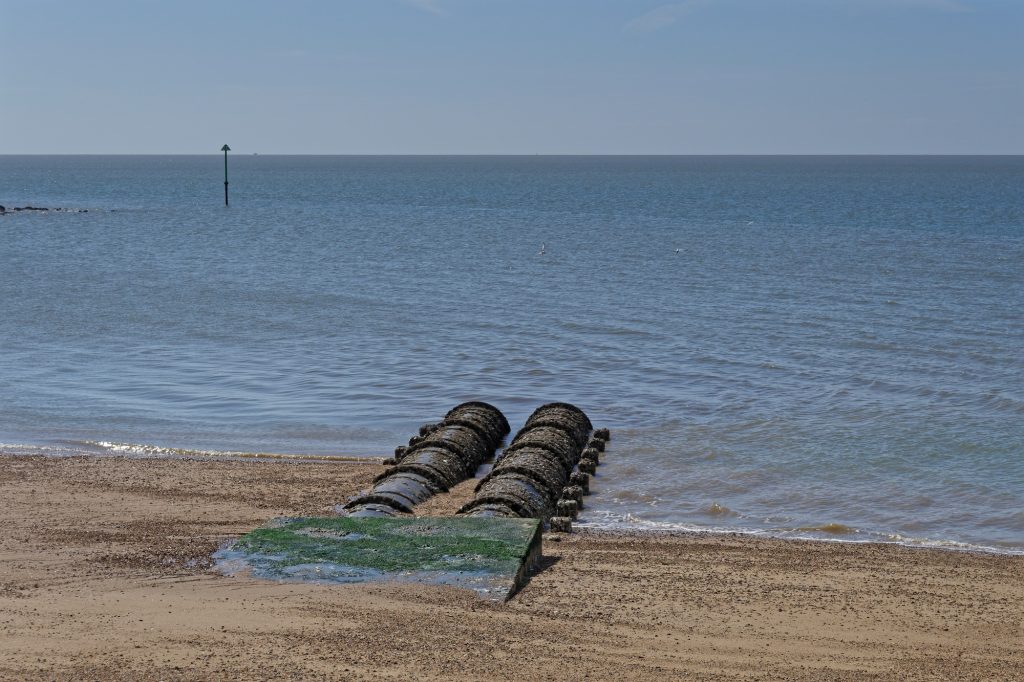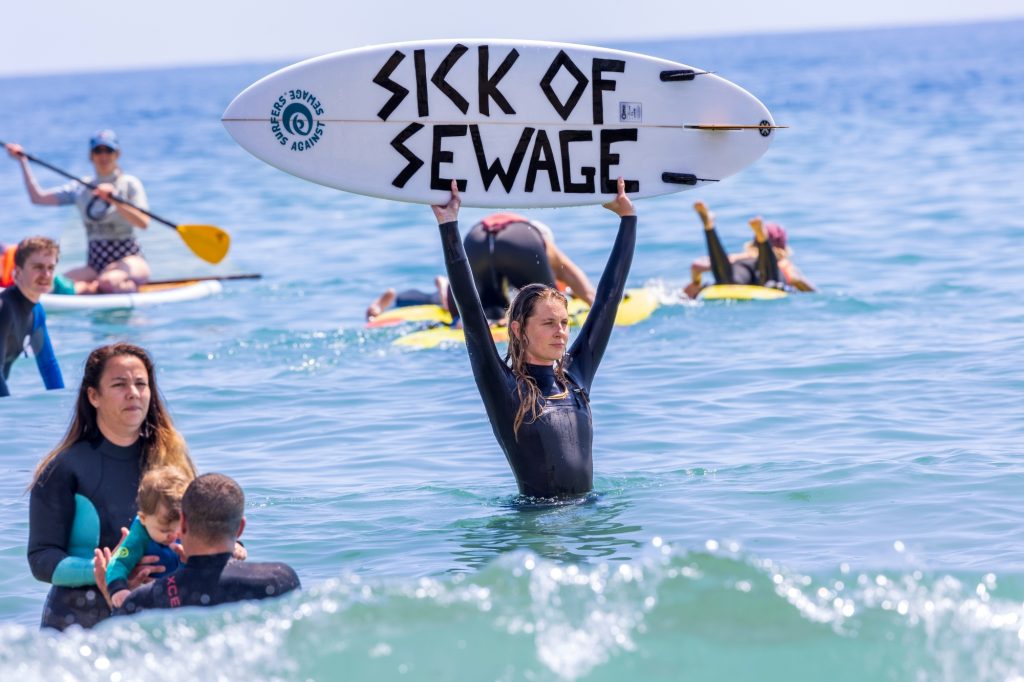Environment Agency, Defra, Ofwat accused of breaking law in regulation of combined sewer overflows

This post was originally published on this site

An investigation by the Office for Environmental Protection (OEP) has identified possible failures to comply with environmental law in relation to the regulation of combined sewer overflows (CSOs) by three public authorities.
The accusations are made of the Department for Environment, Food and Rural Affairs (Defra), the Environment Agency and water regulator Ofwat.
The OEP’s investigation into the regulation of CSOs by the three authorities was launched last June. It was initiated by a complaint that alleged failures to comply with legal duties relating to the monitoring and enforcement of water companies’ management of sewage.
The investigation has only considered CSOs on the sewerage network, not those at water treatment plants. The role of CSOs is to prevent sewage backing up the sewer system when the network is overloaded, but discharges from them can harm freshwater, coastal and marine environments – and the people who use them. They should therefore only be used in exceptional circumstances.
In 2022, CSOs discharged a mix of raw sewage and rainwater into rivers and seas 301,091 times – that’s 825 times a day on average. Pollution warnings were put in place on more than 100 beaches around the UK in the space of a week at the start of September 2022.
The OEP’s investigation set out to clarify the roles and responsibilities of the three public authorities and to determine whether they have failed to comply with their respective duties.
Based on information gathered over the last 15 months, the OEP believes that there may have been failures to comply with environmental laws by all three. It has issued Information Notices to each setting out the details of the possible failures.
The Environment Agency’s potential failures relate to the requirements of urban wastewater legislation and the authority’s resulting role in devising guidance, setting permit conditions for CSOs and reviewing and enforcing of such conditions.
Ofwat’s potential failures relate to its interpretation of sewerage undertakers’ duties to effectually deal with sewage and Ofwat’s duty to make enforcement orders where sewerage undertakers fail to comply with such duties.
Defra’s potential failures relate to the requirements of urban waste water legislation, water quality legislation, and Defra’s duty to make enforcement orders where sewerage companies fail to comply with their own duties to effectually deal with sewage.
Defra, Ofwat and the Environment Agency now have two months to respond. Each will have to detail whether they agree with the OEP’s findings and – whether they agree or not – set out any proposed remedial action or practical measures to address the issues raised.
CMS legal partner with focus on environmental issues Rebecca Roffe told NCE that there has been additional scrutiny on the government’s management of the UK’s waterways since Brexit. “The government is increasingly being accused of turning a blind eye to pollution and water quality issues as part of its “bonfire of environmental regulation”,” she said. “The OEP was pitched as a replacement for the EU Commission, to hold the government and public authorities to account on environmental compliance, and its latest action shows it baring its teeth on a controversial topic with huge public interest.”
She continued: “I would however question whether the OEP’s current actions will lead to any real legal liability – at least in the short term. They have at this stage served only Information Notices, which require the relevant bodies to provide further detail on the alleged breaches. Only once the OEP has concluded its full investigation can it issue a full Decision Notice, setting out the failures identified and seeking remedial action.
“It is also worth pointing out that even that recommendation is non-binding and that the OEP cannot itself force any bodies to take up, or cease, any activities. The only way it can achieve that is to apply to the court for an environmental review, which is akin to a statutory or judicial review – and, given that such cases are often difficult to win, especially when the facts involve complex environmental law considerations, it will be interesting to see whether the OEP takes this all the way.”
Roffe added: “What is more interesting right now is whether the attention being brought to the issue, at a time when the government is already under pressure, will instead lead to change through public and media pressure.”
Defra published its Storm Overflows Discharge Reduction Plan in August 2022 which committed to £56bn spent on water infrastructure by 2050. However, campaigners said the plan was too lenient on water companies and were granted a High Court hearing against it.
The government has committed £2.2bn towards innovations to improve storm overflows and leaks, but this has been called a “knee jerk” by industry leaders.
Defra has also demanded that all water companies provide action plans for all stormwater overflows.
OEP chief regulatory officer Helen Venn said: “Improving the quality of water in our rivers and seas is a complex challenge. There are no quick fixes.
“We recognise that a great deal is already being done to tackle the issue of untreated sewage discharges, and we welcome the intent of government measures such as the Plan for Water and storm overflow targets, as well as commitments to increase investment. We are aware that both the Environment Agency and Ofwat have investigations underway. We await the outcomes with interest.
“We want to make sure that all of these measures and any investments made are as effective as they can be. A regulatory system that works as the law intends will be a key contributor to this.”
A Defra spokesperson said: “The volume of sewage discharged is completely unacceptable. That is why we are the first government in history to take such comprehensive action to tackle it, driving forward more investment, stronger regulation and tougher enforcement – and it’s why we are introducing a legally binding target to reduce storm overflows.
“While we do not agree with the OEP’s initial interpretations, which cover points of law spanning over two decades, we will continue to work constructively with the OEP on this issue.”
An Ofwat spokesperson said: “We have received a formal information notice from the OEP on the next stage of their investigation into Ofwat, Environment Agency and Defra’s oversight and regulation of water companies’ use of storm overflows in England. We welcome the OEP’s considerations, particularly on the clarity of responsibilities for the protection of the environment and we will work with them as their investigation moves forward.
“Our position at Ofwat remains clear, water companies’ performance on the environment is simply not good enough. We have pushed companies to take urgent action to cut sewage discharges, have imposed fines of £250M in the last few years alone and we are currently running our biggest ever investigation into six companies on how they manage sewage treatment works and sewage discharges.”
“We will keep pushing for the change and the improvements that the public rightly expects and where we can learn lessons or do things better, we will do so.”
Like what you’ve read? To receive New Civil Engineer’s daily and weekly newsletters click here.




Responses